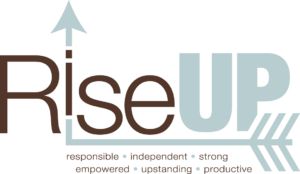(In this recent workshop for RiseUP Cooperative, Garry Thurman and Tyde McIntosh discuss how to avoid making financial decisions that will one day bring you grief. Garry and Tyde both work at Guardian Investment Advisors in Chattanooga and are hosts of the podcast Plan Today Own Tomorrow.)
If you don’t start learning about money now, you will probably make decisions in ignorance that you’ll later regret. One of the most important things to take advantage of at an early age is retirement plans. As soon as you get a full-time job, your employers will probably offer a plan that allows you to put a percentage of your income into an investment account that you can access once you retire. Often, the company will even offer a free match, which will double the amount of money you can set aside without further reducing your current income. Everyone should take advantage of such plans, because they basically give you free money. Also look into investing in a tax-free retirement account, such as a Roth IRA.
Another important financial principle is to not give into the temptation to use money frivolously or to spend money that you don’t have. Saving money to buy big-ticket items, such as cars, can save you from many hassles that come as a result of getting into debt.
Also, spend your money on things that will actually give you enjoyment and valuable experiences, and try to save on the little things. For example, spend your money on going on a nice vacation instead of getting an expensive Starbucks coffee every day.
One thing you need to be really careful about is using credit cards. From a young age, you’ll be bombarded by companies trying to get you to use them, and at first they may seem like an easy way to get what you want. However, if you don’t pay off your card balance every month, the interest you must pay on credit card debt can get out of hand quickly. In contrast, if you do pay off your card every month, having a credit card can actually be helpful. You can get cash back, which returns to you a certain percentage of the money you spend on purchases with your card, and paying your bill every month will improve your credit score.
In addition to your credit card bill, you will deal with many other monthly expenses as an adult. Be sure to pay all of your bills on time, because if you don’t, companies will charge you late fees that can add up to a sizeable amount. Create a budget to ensure that you have enough money to pay the bills every month, and then split the rest of the money between savings and spending money.
One simple rule for savings is that you should always have enough money saved to pay three months’ worth of bills. This will cover unexpected events, such as losing your job. Another thing to consider when saving—especially for retirement—is compounding interest. If you deposit only $10 per day for 40 years at 10% interest, you could save $1.9 million by the time you retire.
While you might not have a family to support yet, if you ever do, having life insurance can be very useful. Especially if you have some debt, a life insurance policy can help your family pay it off if something happens to you. Also, if you have the right kind of life insurance policy, the money you put into it can gain interest and you can even pull it out tax-free.
Something that may seem insignificant at first but can save you a surprising amount of money is cooking for yourself instead of ordering food from restaurants. Eating out typically costs quite a bit more than eating at home, and it is also significantly less healthy. Overall, minimizing the times you eat at restaurants can make your life a lot better.
We also encourage you to look for discounts and lower prices when shopping. Especially when looking for high-price items such as cars or vacations, taking time to research the options before you purchase can save you thousands of dollars.
When considering your financial situation, it is important to tune out insignificant noise. For example, ebbs and flows in the market are often highlighted in financial news, but this does not really affect most long-term investments.
Take these pieces of advice to heart, but don’t stop with them. If you keep learning about how to take care of your money, you can save yourself a lot of suffering that results from mismanaging it. Learning how to harness the full power of money can go very far toward building a good future for yourself and those you care about.



